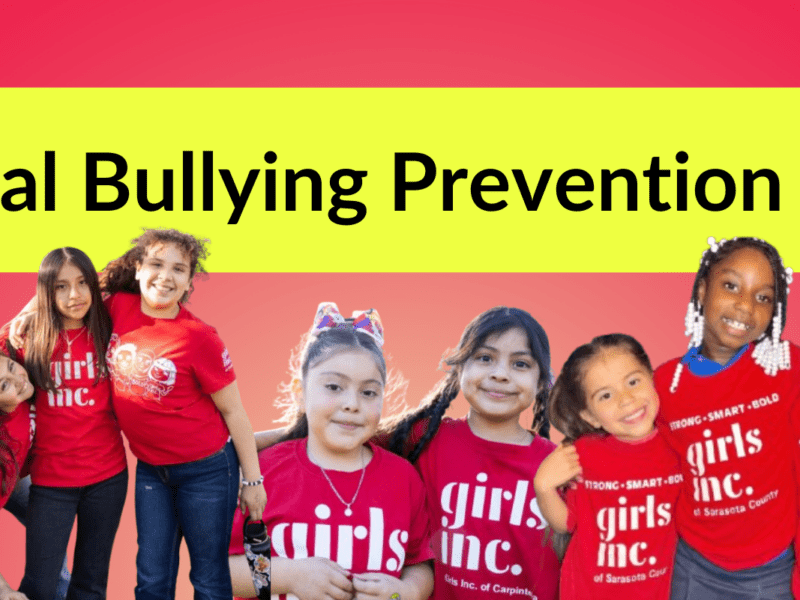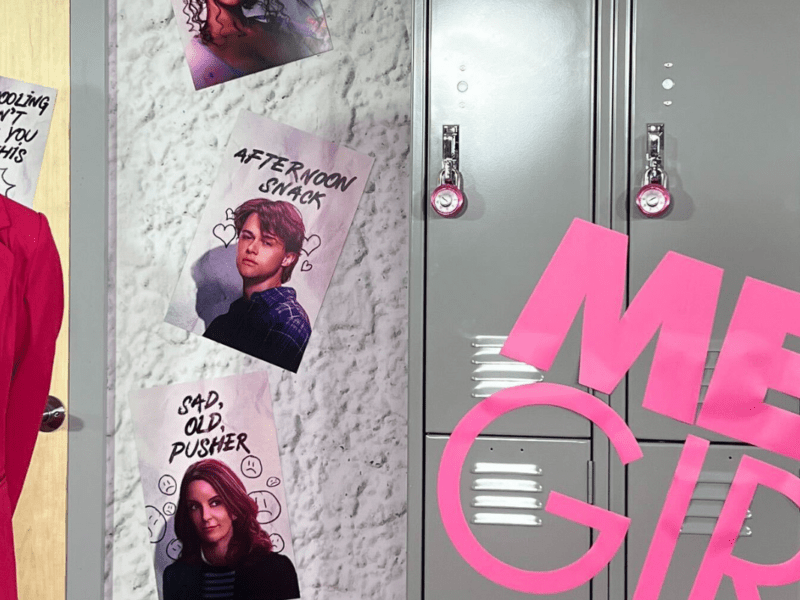What TV Shows Get Right (and Wrong) About Sexual Assault
TV shows are an important part of our lives and play a big role in shaping culture – whether we realize it or not. While the topic of consent is becoming more present in the shows and movies we love, that doesn’t mean the media always gets the issue of sexual assault “right.” This has real world implications. In fact, a study in the Journal of Interpersonal Violence about beliefs and influence of TV found that both young men and women who have viewed rape scenes were more at ease with violence against women, and more attracted to sexual aggression. Let’s explore what shows are getting right and wrong when portraying gender-based violence.
Not a Plot Device
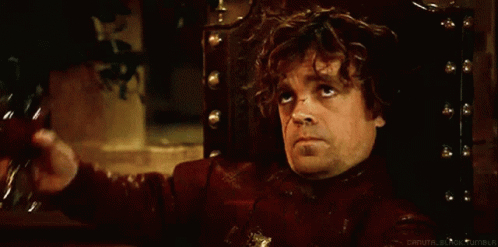
WE ARE GLAD…
that Game of Thrones didn’t shy away from portraying gender-based violence in interpersonal relationships. In fact, not too long ago rape within marriage was not considered a crime. Even today, many people aren’t aware that the majority of survivors know their assailant.
BUT WE WISH…
that Game of Thrones didn’t use gender-based violence as a plot device. With over 13 million views on the series finale (it’s no secret that fans love the dragons, cliff-hangers, and plot twists in the show), and with 17 portrayals of attempted/carried out rapes in only 67 episodes, this series is at risk of normalizing gender-based violence without highlighting the long and lasting consequences it can have on survivors’ lives.
A Missed Opportunity

WE ARE GLAD…
that The Office shows how pervasive workplace harassment is and that it affects men too. When Michael Scott, the boss, kisses Oscar, a gay accountant, in the episode Gay Witch Hunt, the rest of the office (and Dunder Mifflin’s) response is disappointing but sadly realistic. Oscar is paid off with a vacation and a new car and there is no training or accountability for Michael. In fact, survivors are silenced or disbelieved far too often, and workers can be pressured into non-disclosure agreements so that the company protects its reputation.
BUT WE WISH…
the show used Michael’s inappropriate behavior as a reason to host a sexual harassment training for the staff, or as an opportunity for Oscar’s co-workers to stand up for him and side with him over Michael.
Survivors Don’t Lie

WE ARE GLAD…
the show’s lead, Veronica Mars, opened up a conversation about sexual assault that lasted longer than just one episode. The show is spot on in highlighting how people cope with trauma differently. In fact, there is no “normal” way to respond to trauma and we’re glad this series makes that clear.
BUT WE WISH…
the show hadn’t perpetuated the myth that survivors lie about gender-based violence. False reporting statistics are no different for rape than for other crimes. In fact, less than 2-8% of all sexual assault cases are falsely reported. We also wish the show took all sexual assaults seriously, including when fraternity members are victims.
Misrepresenting Consent
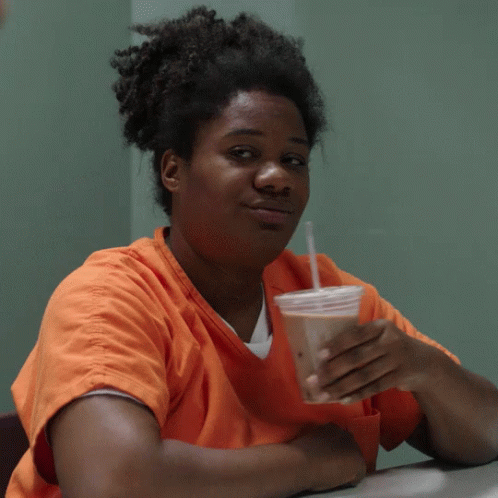
WE ARE GLAD…
that Orange is the New Black shows the long-term effects of sexual assault. Recovering from gender-based violence isn’t always linear and the trauma recovery process can take a long time and bring up a range of emotions including (but not limited to) sadness, anger, and forgiveness.
The show also accurately portrays that perpetrators aren’t always aware of what constitutes gender-based violence, highlighting the need for more education on these topics. We also appreciate that OITNB raises awareness about the experiences of women of color with gender-based violence. Women of color experience disturbing rates of violence: research shows 40-60% of black women will experience sexual assault by the age of 18. Despite this, very few movies and shows focus on the experiences of women of color.
BUT WE WISH…
that OITNB made it clear in the first few seasons that power dynamics between guards and prisoners can render “romantic” relationships nonconsensual. Each year in real life, 80,600 prisoners experience sexual assault, and OITNB had a prime opportunity to highlight this fact. In the first three seasons, the show portrayed some guard-prisoner relationships as romantic and consensual. In reality, though, as prisoner Red points out in a later season, “There’s no such thing as a consensual relationship between a prisoner and a guard.”
Clear Up Title IX
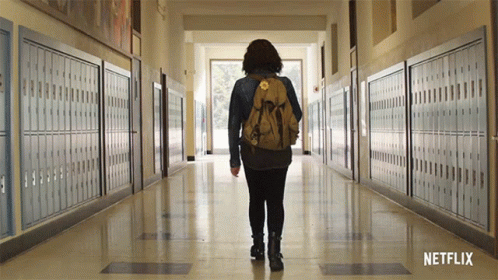
WE ARE GLAD…
that 13 Reasons Why shows students rallying around their peers and standing up against a school administration that did nothing in response to known sexual assault and harassment. All too often, students must act as activists in their community, holding their educational institutions accountable.
BUT WE WISH…
that the show had done a better job of demystifying the Title IX process – which is never clearly explained – and that the writers did a better job of highlighting the positive role faculty members can play in advocating for students.
Title IX is a federal civil rights law passed as part of the Education Amendments of 1972 that prohibits discrimination based on sex in education programs or activities that receive Federal financial assistance. Most kids don’t know that civil rights laws exist to protect their right to access an education and that sexual harassment is a form of sex discrimination that schools must address promptly.
SPOILER ALERT: The school counselor, Mr. Porter, had a responsibility to address what happened to Hannah but didn’t, and this likely was a violation of Title IX.
What Victims Really Face

WE ARE GLAD…
that The Morning Show highlights the ways sexual harassment and violence are often facilitated in an environment where misogynistic jokes and inappropriate behavior are common. The show shatters the myth that sexual harassment is the result of a few bad actors: often many people are complicit in condoning inappropriate behavior and even normalizing it. The show reveals the critical role we all can play in creating safer and healthier environments where disrespectful behavior is not tolerated.
BUT WE WISH…
the show had highlighted the reality that survivors are often punished, demoted, or even fired for reporting sexual harassment. In the show, Hannah is promoted after she reports her boss’s misconduct as a way of buying her silence. This is not typically the case in the real world: survivors frequently are punished, silenced, and not believed after reporting. We also wish the show had spent less time highlighting the ways Mitch’s life changed after he was fired for sexually harassing an employee and more time showcasing the impact his behavior had on his victims’ lives.
Not Just Female
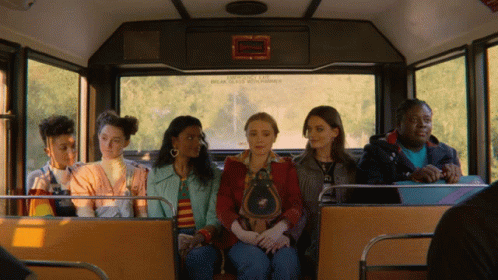
WE ARE GLAD…
that Sex Education highlights Aimee’s experiences after a man masturbates on her leg while she is standing on a public bus (based on the writer’s real personal experiences).
Aimee’s reaction echoes a sentiment shared by many victims: trying to pretend you’re fine when you are anything but okay. The show portrays a feeling of isolation shared by many victims, while also revealing how prominent sexual harassment is.
Aimee says, “he didn’t look like some wanking psycho killer. So it’s like, if he could do something like that, then anyone could. I always felt safe before, and now I don’t.” This prompts the rest of the girls to relate with their own stories, from groping at the train station to indecent exposure at the public pool, which many viewers watching also likely can relate to.
BUT WE WISH…
the show paid more attention to male victims. When the star of the show, Otis, loses his virginity while blacked out, he is concerned that he took advantage of the (also very drunk) girl. But it never comes up that he might have been too drunk to give his own consent.
More youth need to know that consent is a verbal, informed, coherent and enthusiastic ‘yes’ that can be withdrawn at any point. This show highlights the need for all young people to have access to comprehensive sex education so they can learn about consent and healthy relationships.
Girls Inc. is dedicated to ensuring that all girls grow up safe, respected, and valued. Learn more about how you can too and take the #GirlsToo pledge now!

